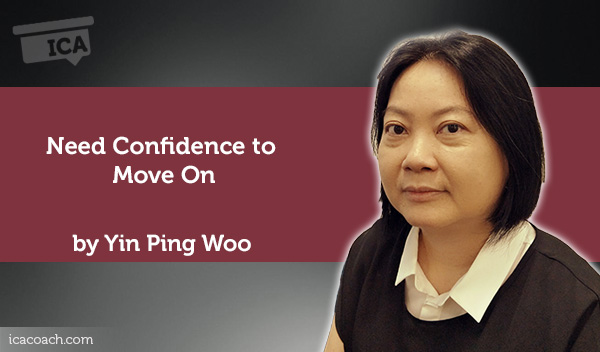
Coaching Case Study By Yin Ping Woo
(Career Coach, SINGAPORE)
Who are the main players in this case study?
Joyce (not her real name), recently set up her sole proprietorship events management business. Prior to this, she has been a home-maker. She lives with her husband and a 17-year old son.
What is the core problem or challenge?
Joyce was in events management before marriage and have always thought about having her own business. After many years of building her life around her family, she realized in end 2016 that she needed to live her own life and takes charge of her own destiny. She took the leap and registered her company recently. But being a new entrant with no reference customer base, projects are hard to come by even though she has been actively networking and soliciting. Two months after setting up, Joyce managed to secure her first project to organize a mid-autumn celebration event. She is very excited but at the same time feels her self-esteem and confidence are lacking as the event gets nearer.
Why it’s a problem?
Joyce is mindful that this debut event has to be successful so as to serve as a reference to secure future projects and expand her network. She needs to feel confident and positive to make this happen.
What’s the worst thing about the problem?
When ask about the possible reason for her low self-esteem and confidence, she reveals that she has personal problems: her marriage is on the rocks, the relationship with her son is no longer close, and her parents never supports her. In short, her family has no interest in what she is doing. In between answering my questions, she starts to rant about the unconcern attitude of her husband and son towards her. I have to be mindful throughout that the conversation does not become a counselling session!
What specific coaching skills or approach were used in this case?
Joyce wants to live her own life and has taken the first stepby setting up her business. I pointout to her that it takes courage and faith to take this action, therefore she is doing great and isdefinitely confident of her capabilityin order to venture out on her own.
She has also been taking courses and ad hoc sales jobs to keep herself busy.
What are the expected results of your process?
It is important to set the right expectations, agenda and outcome at the beginning of the coaching session. While I express empathy to Joyce’s family situation, I have to be mindful that I do not cross the line to give her family counselling advice.
Active listening and questioning pertaining to Joyce’s family issues lead me to realize that the strain in the relationship is always at the back of her mind even though she claims during the session that “they are none of her concern anymore”. By asking Joyce to choose the “bags”she wants to bring in her journey to business development sparks a new awareness in her- she realizes that she can actually choose not to let her family issues affect her journey.
Joyce has already created her goal and plan of action (her business) before we meet. When acknowledging the actions that she has taken (networking, taking up courses, ad hoc jobs) and the progress she has made (she got her first event) so far, I could see her face beamed. She even thanks me when I acknowledge that she already has the confidence and self-assurance in her when she made those actions happen, and that she should be proud of her achievement. I also encourage her to continue taking up courses and ad hoc jobs, as long she feels good and confident through new knowledge gain, and earning her own keep.
Joyce acknowledged that she definitely felt more confident at the end of the session, therefore the coaching process was effective. Reflecting back, I could also have asked her to do a visualization of the results she wants to achieve and have her come up with an action plan.